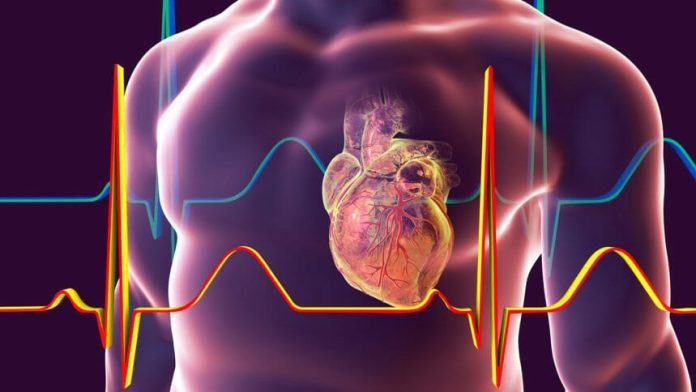CRISPR gene-editing works to reduce high cholesterol in a new study
A single infusion of an experimental gene-editing drug appears safe and effective for cutting cholesterol, possibly for life, according to a small early study released Saturday.
The study, which involved 15 volunteers, found one infusion of a drug that uses the CRISPR gene-editing technique could safely reduce cholesterol, as well as levels of harmful triglycerides, by about half.
“Rather than a lifetime worth of medicine, we have the potential to give people a cure,” said Dr. Luke Laffin, a preventative cardiologist at the Cleveland Clinic who helped conduct the study. “It’s very exciting.”
The results of the study were presented Saturday at the American Heart Association’s annual meeting and published in The New England Journal of Medicine.
If confirmed by future research, the approach could provide a powerful new weapon to fight heart disease, the nation’s leading killer, freeing people from the need to take statins and other cholesterol-lowering drugs every day.
Laffin and others cautioned, however, that much more research is needed to confirm the findings and make sure the treatment would be safe and long-lasting.
“The idea of an inexpensive, one-and-done [treatment], so you don’t have to take any of those drugs, right now that’s an idea — a fantasy — because gene-editing is expensive, long-term safety is unclear,” Dr. Eric Topol, a cardiologist at Scripps Research in California who wasn’t involved in the study.
Other scientists agree.
“It’s a step in the right direction,” says Dr. Kiran Musunuru, scientific director of the Center for Inherited Cardiovascular Medicine at the University of Pennsylvania Perelman School of Medicine. He was not involved in the research either.
“It could be a very important tool,” he says. “But to actually prove it’s protective against cardiovascular disease you need to do more study.”
And, Musunuru and others note that the bar for safety would be higher to use gene-editing on patients who are otherwise healthy compared to those already suffering from serious illnesses.
Doctors infuse the drug into patients’ bloodstream so it can travel to the liver and disable a gene called ANGPTL3, which is involved in producing cholesterol and triglycerides.
“It’s a knockout of the gene. It cuts it. And after that, the gene no longer functions,” said Dr. Steven Nissen, another preventive cardiologist at the Cleveland Clinic involved in the research.
Samarth Kulkarni, chief executive officer at CRISPR Therapeutics, which is developing the drug and sponsored the study, says the approach “could potentially impact millions of people around the world.”
The findings are consistent with a similar approach being developed by another company, Verve Therapeutics in Boston.
“The fact that we now have more clinical data that there’s a ‘there there’ is of course tremendously encouraging,” says Fyodor Urnov, who studies gene editing at the University of California, Berkeley. “Having a CRISPR medicine for heart attack would be an extraordinary win.”











